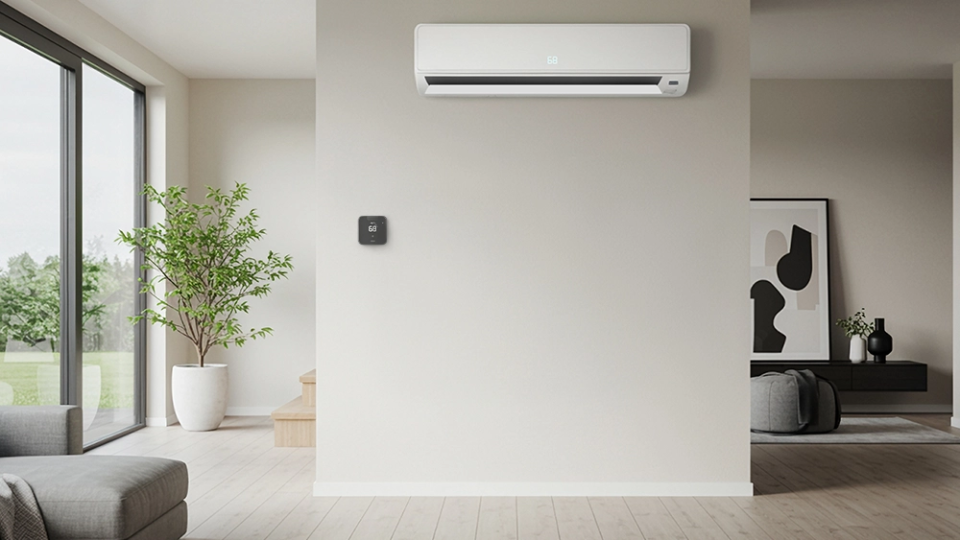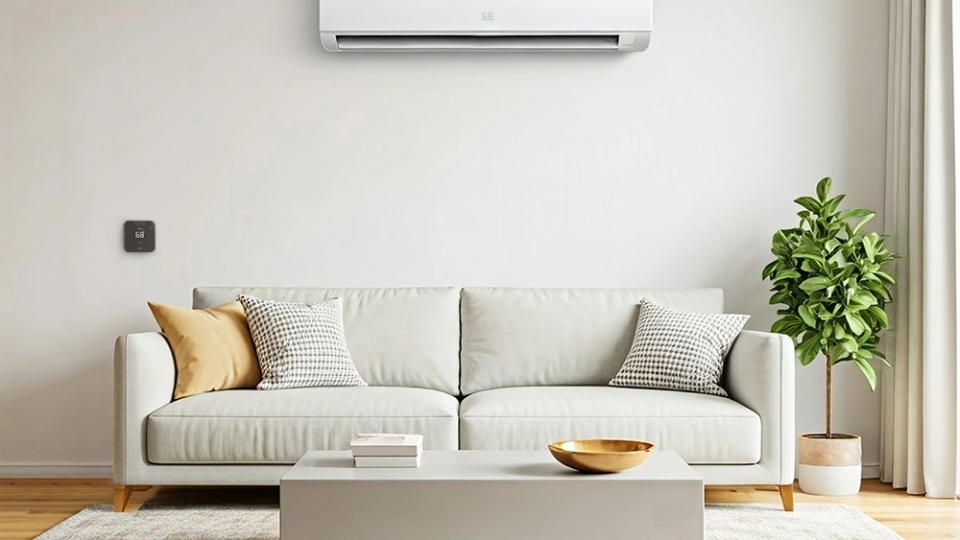
Key Takeaways
- Most ACs can last between 15 to 20 years with proper care.
- Timely filter and coil cleaning, along with regular professional annual tune-ups, can help maximize the longevity.
- If your AC struggles with cooling or needs frequent repairs, it’s likely time for a replacement.
Whether thinking about the maintenance of your current AC or planning to splurge on a new unit, you would have come across one question: “How long do air conditioners last?” It can be quite devastating to learn that your comfort companion has a limited lifespan and will not last forever.
An air conditioner nearing the end of its life will break down more frequently and draw more energy than necessary. Air conditioners can last 15-20 years on average, but this greatly depends on how you care for them. Regular maintenance and other techniques can help extend the life of your AC unit.
Even the best HVAC systems, on top of their maintenance game, will eventually run their course over time.
This is why it is important for you to know how long do air conditioners last, what factors affect their life expectancy, and how to recognize the signs that it’s time to replace the entire system.
Determinants of Air Conditioner’s Life
The lifespan of an air conditioner varies based on different factors. Here is the list of the five most common factors that impact its life expectancy:
1. Size of Your AC
Have you bought an air conditioner without taking its size into consideration? This issue is frequently overlooked, but the impact size can have on the life span of your HVAC unit can be massive.
An HVAC unit larger than required will have short cycles, meaning that it will frequently turn on and off. It has short cycles because the cooling/heating demands are met too quickly.
A small unit will have to run for a long time to cool or heat your house, which may cause overheating of its parts.
So, an HVAC unit that is not of the right size is being overburdened. This will reduce its lifespan in the longer run.
Here is everything you need to know about correct air conditioner sizing.
2. Air Conditioner Maintenance

If you are serious about extending the life of your AC, you should never neglect its maintenance.
Ignoring air conditioners maintenance can clog its filters, make the condenser dirty, and block the drain pan.
Unclean condensers draw more power, which can be extremely dangerous for your air conditioner. Dirty air filters can impact the airflow, making your system work harder to cool the house and thus affecting its life span with the extra effort.
Your best choice to make any mini-split, window,
or portable AC smart. Enhance your comfort and savings.

A thorough annual check-up ensures that filters are not filled with debris, ductwork insulation is sealed correctly, and the condenser is clean. Further, regular tune-ups prevent frequent breakdown and costly repair expenses.
3. Thermostat Setting & Placement

Have you ever thought that the setting of your smart thermostat (central AC) or a mini-split thermostat (ductless systems) could have an impact on the longevity of your air conditioner?
Still can’t make the connection?
Well, changing the thermostat setting frequently or maintaining the same temperature in every season stresses out your air conditioner.
Constantly changing the temperature setting causes your unit to stop and start too quickly, which increases wear and tear in the longer run.
Your thermostat settings need to be changed according to the season and time of the day. For example, you cannot keep the same temperature during the daytime when you are away or during the night when generally the temperature outside drops. You can utilize a smart thermostat to set schedules or modes such as Comfy to automate the best temperature possible while saving energy and reducing the stress on your air conditioner.
Furthermore, the placement of your smart thermostat or a smart AC controller also plays a significant role. If it is placed where it gets direct exposure to sunlight or it is installed near the appliances that radiate heat, it will give false readings as temperatures keep fluctuating. Due to inaccurate readings, your air conditioner will have to work for extended periods, resulting in increased energy consumption and a reduction in its average lifespan.
4. Air Conditioner Installation
The installation of your AC can also have a say in how long it will continue to work effectively.
If a licensed HVAC expert has not installed your unit, it can cause problems for you in the future. This doesn’t mean you should not consider a DIY installation – you absolutely can, especially for ductless units but by making sure the wiring is intact, and the room is well insulated.
An air conditioner installed in a poorly insulated room will cause the unit to work harder and end up overstressing your AC unit, affecting its lifespan. If the refrigerant pipes that connect the outdoor and indoor unit of your unit are too long, they will affect the AC’s cooling cycle and put an unnecessary strain on the compressor.
Air conditioner wiring should also be given special attention during installation. Incorrect wiring can be quite risky and may create faults within the system.
If you have a ducted system, make sure the ducts are correctly sealed, there are no cracks, and the venting system is working effectively.
To be on the safe side, it’s best to hire an HVAC professional who has been trained in installing air conditioners.
5. Air Conditioner Usage Patterns
If you keep your HVAC unit switched on all day and night, there tends to be more wear and tear due to non-stop running. This leads to a decrease in its average life cycle. It’s best to only use your air conditioner only when you really need it. Using smart air conditioning, though, you can run your unit all day optimally, allowing it to automatically switch off when your ideal room temperature is achieved.
If you want your AC to keep on working 24/7 and also wish to extend its life, then there are a few points that should be taken care of:
- In summers, close the blinds, use ceiling fans and dehumidifiers to minimize the system’s load.
- Smart thermostats or smart AC controllers should be used as they help maintain the temperature and humidity levels without overstressing the system.
Signs that Your Air Conditioner Has Completed Its Life Span
Now that you know how long do air conditioners last and what you can do to increase the lifespan, it’s important to also know when it’s time to say goodbye.
Unfortunately, if your air conditioner is not performing the way it once used to, it may have reached its ending days. Here are seven signs that point out that your air conditioner has completed its lifespan:
1. Your Energy Costs Have Increased

An HVAC unit that has run its course will not remain energy efficient. As the AC ages, it starts losing its SEER value. SEER is the seasonal energy efficiency ratio; it measures the highest possible efficiency of an HVAC unit. The decrease in efficiency results in an increase in bills as the air conditioner starts drawing more power.
If you notice a sudden bump in your bills and you can’t pinpoint the exact issue or other reasons have been ruled out, it might be due to your air conditioner’s age.
It would be best to contact a professional for a thorough check-up of your unit.
2. Excessive Humidity in Your Home
Your AC works by absorbing warm air, removing moisture from it, cooling it, and then sending it back to your house.
As it gets old, it won’t be able to handle the extra load of high humidity in summers. The high humidity essentially cancels out the cooling effect, thus making the air conditioner ineffective.
3. Your HVAC Uses Freon
Back in the old days, chlorofluorocarbons (CFCs) such as R-12 and R-22 were used as refrigerants in air conditioners. But due to the concern that they are not eco-friendly, newer options like R-410A are now being used.
As of January 1, 2020, the US does not produce or import Freon. The restrictions were initially put up in 2010 to cut down on the use of R-22. If your AC is more than a decade old, it definitely uses Freon.
So, if the refrigerant of your old HVAC unit starts leaking, there is less chance that you would be able to replace it.
In this scenario, it is better to replace your air conditioner with an eco-friendlier option.
Before buying a new air conditioner, you have to dispose of the old one. Due to refrigerants contributing to global warming, a proper method of air conditioner disposal should be adopted. Even though the new option R-410A does not impact the ozone, it still contributes to the greenhouse effect.
4. Your AC Requires Repair Every Now And Then

You called the HVAC professional just two weeks ago, and your AC has stopped working again. You might be wondering what’s wrong with your air conditioner.
Your system is definitely not working properly, as it should not require repairs too often.
You should ask yourself in this situation – Has it gone past its average life span?
It is a common sign that air conditioners keep breaking down once they have completed their life span.
So, next time you call an expert, ask them to assess the overall health of your air conditioner. If it turns out that it could require more expensive repairs in the coming days, consider letting it go.
5. Your AC Smells Bad
AC smells are not uncommon and may not always indicate the end of life of your unit. There could be various reasons why your AC smells.
- If you turn on the AC and you smell a moldy or musty kind of odor, it might be due to moisture getting trapped in the filters.
- A smoky smell indicates that something is burning.
- A rotten egg smell indicates that a small animal, such as a rodent, has died and gotten stuck in your air conditioner.
If all the above points have been ruled out by a professional, then it might be due to your air conditioner’s old age.
6. Your AC Is Making Weird Noises
Different air conditioner noises may mean other things, but unusual loud noises signify that your air conditioner has reached the end of its life.
- If you hear grinding noises, they may be due to motor failure. In old age, the lubrication needed by the motor to work seamlessly seeps out, increasing wear and tear. Motor replacement can be quite costly. If it costs you half of the original price, it might be better to let the unit go and replace it with a new one.
- If it is making a squealing noise, it might be related to the belt that connects the motor to the blower. This noise most likely means that the belt has slipped from its place. Moreover, new HVAC models do not have a belt system to combat the aforementioned issue.
7. Compressor Breakdown
Your air conditioner cannot function without a compressor. Its job is to compress the refrigerant and pump it throughout the AC to remove heat.
The compressor is one of the reliable components of your HVAC system. It is highly unlikely to fail before the expected life span, and if it has, then it is due to some other underlying condition.
If the cause of failure cannot be identified, it is probably due to the old age of your heating/cooling system.
In case of failure, it is not recommended to go for repair due to two reasons:
- It can be quite expensive.
- It can be impossible to repair in some conditions.
Should You Replace or Repair?

Deciding to replace or repair your HVAC unit can be really tricky.
Just like any other appliance, your air conditioner, no matter how old, can be repaired. The main factor that should be taken into account – how much it costs for repair.
The rule that is generally followed; if the repair costs 50% of the original price of your AC, it is better to replace it.
If your air conditioner has been with you for more than a decade, it might not need just one-time repair; it might continue to break down after a specific time. Further, if your compressor – the heart of the HVAC system, has failed, it would be too costly to replace it.
So, instead of letting repair costs keep building up, consider replacing your AC.
The new unit will provide more convenience – you won’t have to call the HVAC professional for repairs every now and then, it will be more energy-efficient, and it will not harm the ozone layer as newer models use R-410A refrigerants. Newer models are also made to combat humidity in a much effective manner, making your home environment feel cozy and comfortable.
How Can You Make It Last Longer?
Air conditioners become ineffective after a certain period, but you can take different measures to extend their life by a few years.
Regular maintenance, keeping its indoor/outdoor unit free from debris, and focusing on insulation can help you extend the lifespan of your air conditioner.
Further, decreasing your HVAC’s load by turning it off for some time or using other appliances such as ceiling fans and dehumidifiers can be super helpful in increasing its average lifespan.
Buying an air conditioner is an investment, so it’s natural that you would want to know how long it will last. All the points discussed above can help you determine if your AC is at its last stages and whether you should consider fixing it or go for replacement. When buying a new model, just remember – with proper care and maintenance, your AC will last longer!








